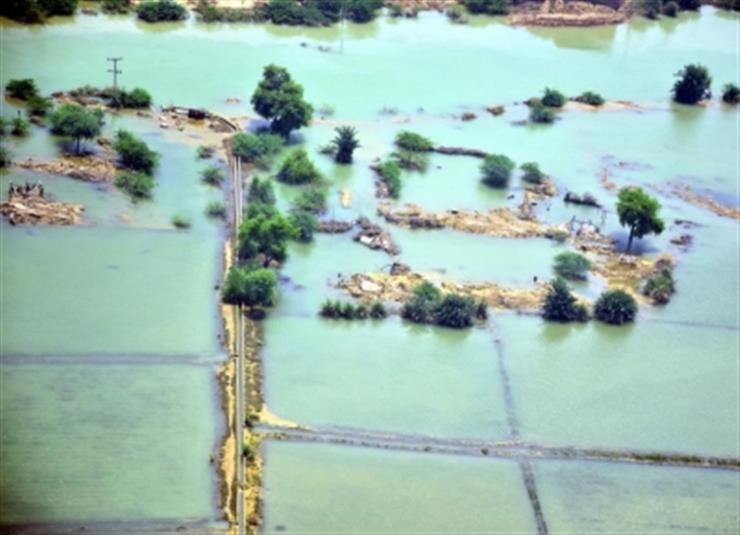NEW DELHI: Human-caused climate change likely increased intense rainfall that flooded swaths of land across Pakistan, according to rapid attribution analysis by a leading international team of climatologists as part of the World Weather Group Allocation.
Extreme rainfall in the region has increased by 50-75% and some climate models suggest that this increase could be entirely due to human-induced climate change, although there are considerable uncertainties in the results.
Pakistan received more than three times its usual rainfall in August, making it the wettest August since 1961.
The two southern provinces of Sindh and Balochistan experienced their wettest August on record, receiving seven and eight times their usual monthly totals respectively.
The Indus River, which runs the length of the country, overflowed thousands of square kilometres, while intense local rainfall also led to urban flash floods, landslides and glacial lake overflows.
The resulting rains and floods affected more than 33 million people, destroyed 1.7 million homes and killed more than 1,500 people.
To quantify the effect of climate change on heavy rainfall, scientists analyzed weather data and computer simulations to compare the climate as it is today, after about 1.2 degrees Celsius of global warming since the end of of the 1800s, with the climate of the past, following peer-reviewed methods.
The researchers focused on two aspects of the event: the 60-day period of heaviest rainfall over the Indus Basin between June and September, and the five-day period of heaviest rainfall in Sindh and Balochistan.
Scientists have found that modern climate models are not fully capable of simulating monsoon rainfall in the Indus Basin, as the region is located at the western end of the monsoon and its rainfall pattern is highly variable d year to year.
Therefore, they could not quantify the influence of climate change as precisely as has been possible in other studies of extreme weather events, such as heat waves and heavy rains in areas with less variability and more reliable models.
For five-day rainfall totals, some models suggest that climate change has increased five-day rainfall totals in Sindh and Balochistan by up to 50%. This is in line with recent IPCC assessments predicting more intense rainfall in the region and historical weather records which show that such heavy rainfall events have increased by 75% in the region in recent decades.
There were large uncertainties in the climate modeling of the 60-day maximum rainfall in the Indus basin, which meant that scientists were unable to estimate the influence of climate change on this aspect of the weather. precipitation.
The analysis also suggests that heavy rainfall like that recorded in Pakistan this year now has about a 1% chance of occurring every year, although this estimate also comes with a wide range of uncertainty.
The same event would likely have been much less likely in a world without anthropogenic greenhouse gas emissions, meaning climate change likely made extreme rainfall more likely.
While the extreme nature of the rainfall and subsequent flooding meant that some level of impact was likely unavoidable, many factors contributed to increasing the damage, including high poverty rates and political instability.
The study was conducted by 26 researchers as part of the World Weather Attribution group, including scientists from universities and meteorological agencies in Denmark, France, Germany, India, the Netherlands, New Zealand, in Pakistan, South Africa, the United Kingdom and the United States.
Fahad Saeed, a researcher at the Center for Climate Change and Sustainable Development in Islamabad, said: “The fingerprints of climate change in the worsening heat wave earlier this year, and now floods, provide conclusive evidence of Pakistan’s vulnerability to such extremes.
“As chair of the G77, the country must use this evidence at COP27 to push the world to reduce emissions immediately.
“Pakistan must also call on developed countries to take responsibility and provide support for adaptation and loss and damage to countries and people who are most affected by climate change.”
Friederike Otto, Lecturer in Climate Science at the Grantham Institute — Climate Change and the Environment, Imperial College London, said: “Our evidence suggests that climate change played a significant role in the event, although our analysis does not allow us to quantify the importance of the role.
“That’s because it’s a region with very different weather patterns from year to year, making it difficult to see long-term changes in observed data and climate models. This means the he mathematical uncertainty is great.
“However, not all outcomes within the uncertainty range are equally likely. What we have seen in Pakistan is exactly what climate projections have predicted for years. This is also consistent with historical records showing that heavy rainfall has significantly increased in the region since man began emitting large amounts of greenhouse gases into the atmosphere.”




